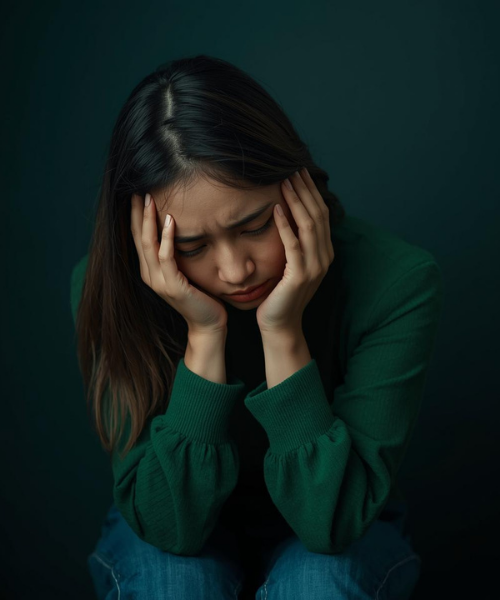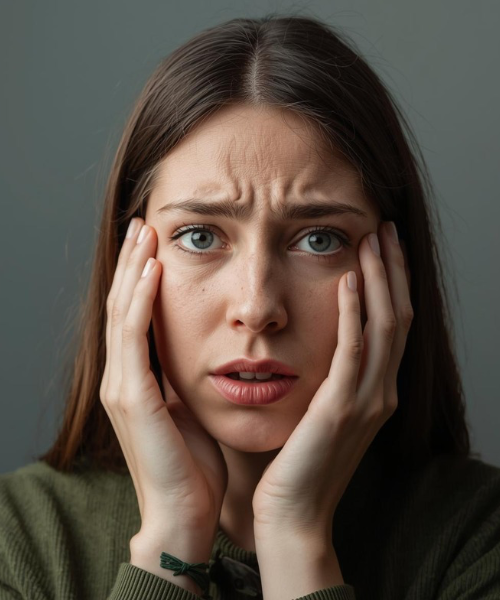Depression, Focus, and Decision-Making: How Therapy Helps
Struggling to concentrate or make decisions due to depression? Learn why this happens and how CBT, ACT, IFS, and schema-informed therapy can help restore clarity and confidence.
When Depression Impairs Concentration and Decisions
Many people think of depression primarily in terms of low mood, sadness, or loss of interest. Yet for many individuals, the most disruptive symptoms are cognitive: difficulty concentrating, mental fog, slowed thinking, and feeling unable to make even small decisions.
These challenges can affect work, school, parenting, and relationships, often leading to frustration, shame, or self-criticism.
From a psychological perspective, these symptoms are not a personal failing. They are common, understandable responses to the internal load depression places on the nervous system and the mind.
Why Depression Affects Thinking and Focus
Depression tends to narrow attention toward perceived threats, losses, or failures. Rumination, self-doubt, and negative core beliefs compete for mental space, leaving fewer cognitive resources available for focus and problem-solving. At the same time, low energy, disrupted sleep, and emotional overwhelm can slow processing speed and reduce mental flexibility.
Decision-making often becomes difficult because choices feel higher-stakes under depression. Many people fear making the “wrong” choice, anticipate regret, or feel disconnected from their values and preferences. This can result in avoidance, procrastination, or relying on others to decide.
Understanding Symptom Coherence
In therapy, we often look at the coherence of symptoms—how concentration difficulties, indecision, low mood, and withdrawal may all be serving a protective or adaptive function. For example, mental slowing may reduce exposure to overwhelming emotions, while indecision may function as a way to avoid anticipated failure or rejection.
When symptoms are understood as part of a coherent system rather than isolated problems, treatment becomes more targeted, compassionate, and effective.
How Cognitive Behavioural Therapy (CBT) Helps
CBT supports concentration and decision-making by addressing unhelpful thinking patterns and behavioural cycles that maintain depression.
CBT interventions may include:
• Identifying and challenging depressive thoughts that interfere with focus (such as “I can’t think clearly, so there’s no point trying”)
• Reducing rumination through structured problem-solving and attention-shifting strategies
• Behavioural activation to gently re-engage cognitive systems through meaningful activity
• Building decision-making skills by breaking choices into manageable steps and testing predictions in real life
Over time, these strategies help restore a sense of agency and cognitive confidence.
Using Acceptance and Commitment Therapy (ACT)
ACT helps when concentration difficulties are fuelled by internal struggle—trying to force clarity, suppress thoughts, or eliminate uncertainty before acting.
ACT focuses on:
• Learning to notice thoughts and mental fog without getting entangled in them
• Reducing the struggle with “not thinking well enough”
• Clarifying values to guide decisions even when clarity feels limited
• Taking committed action despite uncertainty or low motivation
This approach can be especially helpful when people feel stuck waiting to “feel better” before making decisions.
Internal Family Systems (IFS) and Cognitive Blocks
IFS offers a powerful way to understand internal conflicts that impair focus and decision-making. Parts of the self may be pulling in different directions—one part pushing for action, another warning against risk, and another carrying hopelessness or shame.
In IFS-informed work, we help clients:
• Identify parts that contribute to mental fog, indecision, or self-criticism
• Understand the protective intentions behind these parts
• Reduce internal polarization that drains cognitive energy
• Access a calm, grounded internal state that supports clearer thinking
As internal relationships soften, mental clarity often improves naturally.
Schema-Informed Work for Lasting Change
Long-standing schemas—such as failure, defectiveness, or unrelenting standards—can heavily influence how people approach thinking and decisions. These schemas may drive perfectionism, fear of mistakes, or chronic self-doubt, all of which worsen concentration under depression.
Schema-informed therapy helps clients recognize these patterns, understand their origins, and develop healthier ways of relating to themselves when cognitive symptoms arise.
A More Integrated Path Forward
When CBT, ACT, IFS, and schema awareness are integrated, therapy moves beyond symptom management toward deeper change. Concentration and decision-making improve not because clients force themselves to think differently, but because the internal conditions that impair thinking are addressed with skill and compassion.
If difficulties concentrating or making decisions are interfering with your life, support can make a meaningful difference—and when clarity feels out of reach, we invite you to contact us today, because effective therapy doesn’t wait for motivation or certainty to begin.
Resources:
Canada’s Largest Depression Research NetworkCanada’s Largest Depression Research Network




